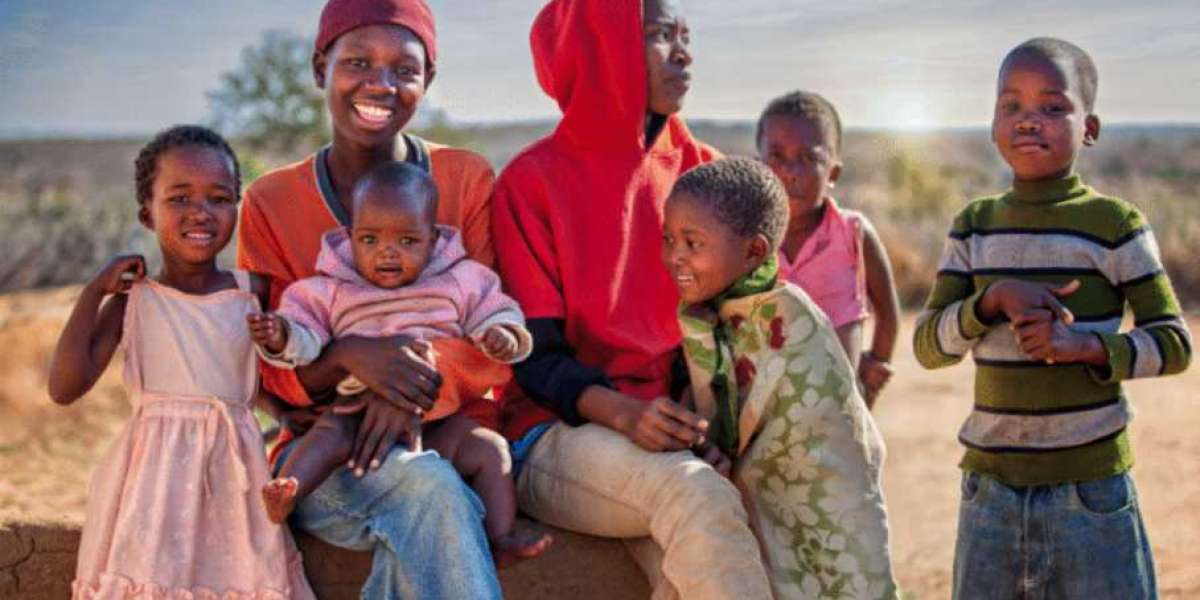Education is a powerful tool for change, and in Fiji, this truth holds strong. While the government of Fiji provides the formal structure for education, there are still many gaps that remain unfilled, particularly in remote and under-resourced communities. This is where non-governmental organizations (NGOs) step in, working alongside local communities and government bodies to deliver educational opportunities where they are needed most. NGOs in Fiji have become vital players in the educational sector, influencing everything from early childhood education to adult literacy and vocational training.
Fiji’s unique geography—an archipelago of over 300 islands—presents significant challenges in delivering education uniformly. Many remote islands lack adequate schools, qualified teachers, and essential learning materials. Additionally, economic disparities and social challenges create unequal access to education, particularly for children from low-income families, informal settlements, or rural communities. NGOs in Fiji are working actively to overcome these barriers, creating inclusive and flexible solutions that cater to diverse educational needs.
The Role of NGOs in Fiji’s Education System
NGOs in Fiji operate with a variety of missions, but many of them share a common goal: to ensure that every child, regardless of background or location, has access to quality education. These organizations take on roles that complement the government’s efforts, focusing on areas such as early childhood education, primary and secondary school support, teacher training, educational material development, and community engagement.
Some NGOs build and manage preschools in communities where there are no early learning centers. Others provide scholarships, school uniforms, transport, and stationery to children from disadvantaged backgrounds. Some focus on special education, ensuring that children with disabilities receive proper support and opportunities. NGOs also provide non-formal education to adults and out-of-school youth, offering vocational training and life skills to help improve employment prospects.
In addition to direct educational support, NGOs often work to raise awareness about the importance of education, encouraging families and communities to invest in the learning journeys of their children. These efforts are especially important in areas where education may not be prioritized due to economic hardship or cultural barriers.
NGOs in Fiji: A Closer Look
The landscape of NGOs in Fiji is diverse and dynamic. Some organizations are local, born from within communities and staffed by people who have firsthand experience with the challenges faced. Others are branches of international NGOs with access to global funding and networks, bringing in new ideas and resources.
The impact of these NGOs can be seen in many tangible ways. In several rural communities, for example, early childhood centers have been established where there were previously none. These centers not only provide foundational education but also employ local teachers, boosting employment and capacity within the community.
Other NGOs in Fiji focus on strengthening the education system by training teachers, developing culturally relevant curricula, and providing schools with essential resources such as books, computers, and classroom furniture. Some organizations also support education through health and nutrition programs, recognizing that children learn better when they are healthy and well-nourished.
Bridging the Gaps in Remote Areas
One of the most remarkable contributions of NGOs is their ability to reach areas that government services struggle to access. Fiji’s scattered geography means that some islands are accessible only by boat, often infrequently and at high cost. For children in these remote locations, access to education can be sporadic or non-existent.
NGOs in Fiji often operate mobile schools or digital learning programs designed specifically for remote communities. They bring in trained volunteers or teachers to conduct short-term intensive programs, sometimes using solar-powered devices or printed materials tailored to the local context. These initiatives not only provide education but also give isolated communities a sense of connection and inclusion.
Furthermore, some NGOs work to empower local leadership, training village committees to take responsibility for maintaining school facilities and supporting teachers. This community-based approach creates sustainability and fosters a sense of ownership that increases the likelihood of long-term success.
Promoting Inclusive and Equitable Education
In addition to physical and economic barriers, social exclusion also limits access to education in certain communities. Children with disabilities, for example, often face a lack of support in mainstream schools. Girls may be discouraged from continuing education due to cultural norms or family responsibilities. Children from informal settlements may lack legal documentation required for school enrollment.
NGOs in Fiji have played an important role in promoting inclusivity and equity in education. They advocate for the rights of all children to attend school and often provide tailored programs to address specific needs. Some run special education initiatives, while others offer safe spaces for girls, mentoring for at-risk youth, or literacy programs for adults who missed formal schooling.
These organizations also help build awareness within communities about the value of inclusive education, encouraging families to break down stereotypes and cultural barriers that may be preventing some children from reaching their full potential.
Impact and Outcomes
The long-term impact of NGOs in Fiji’s education sector is evident in both statistics and stories. School enrollment has increased in many areas where NGOs operate. Children who once lacked access to early education are now better prepared for primary school. Dropout rates have decreased due to scholarship programs and support services. Communities have become more engaged in school activities, and the quality of teaching has improved with additional training and resources.
Perhaps most importantly, many children now have hope—hope for a brighter future through education. Stories of children from disadvantaged backgrounds who went on to succeed academically, or even return to their communities as teachers or health workers, are becoming more common thanks to the efforts of NGOs.
Challenges Faced by NGOs
Despite their positive contributions, NGOs in Fiji also face significant challenges. Funding is a constant concern, as many organizations rely on international donations or short-term grants. This can make long-term planning difficult and lead to the closure of programs when funding dries up.
Coordination with government bodies can also be challenging. While most NGOs strive to align their efforts with national policies, inconsistencies in communication or support can hinder progress. There’s also the risk of duplication, where multiple organizations operate in the same area without coordination, leading to inefficient use of resources.
Moreover, the logistical hurdles of working in remote areas, cultural misunderstandings, and the need for ongoing monitoring and evaluation are all part of the daily reality for these organizations. Despite these challenges, many continue to find innovative and resilient ways to deliver impact.
The Future of NGOs in Education
As Fiji continues to develop, the role of NGOs in education will remain essential. Their ability to adapt quickly, work closely with communities, and provide targeted interventions makes them powerful allies in the pursuit of educational equity. With better collaboration between government agencies, the private sector, and civil society, the potential for scaling successful models and reaching even the most vulnerable learners becomes more realistic.
In the future, a stronger emphasis on digital education, climate-resilient learning spaces, and inclusive policies will be crucial. NGOs in Fiji are well-positioned to lead and support these changes—bringing education closer to the people, and helping to build a nation where every child has the opportunity to learn, grow, and thrive.



